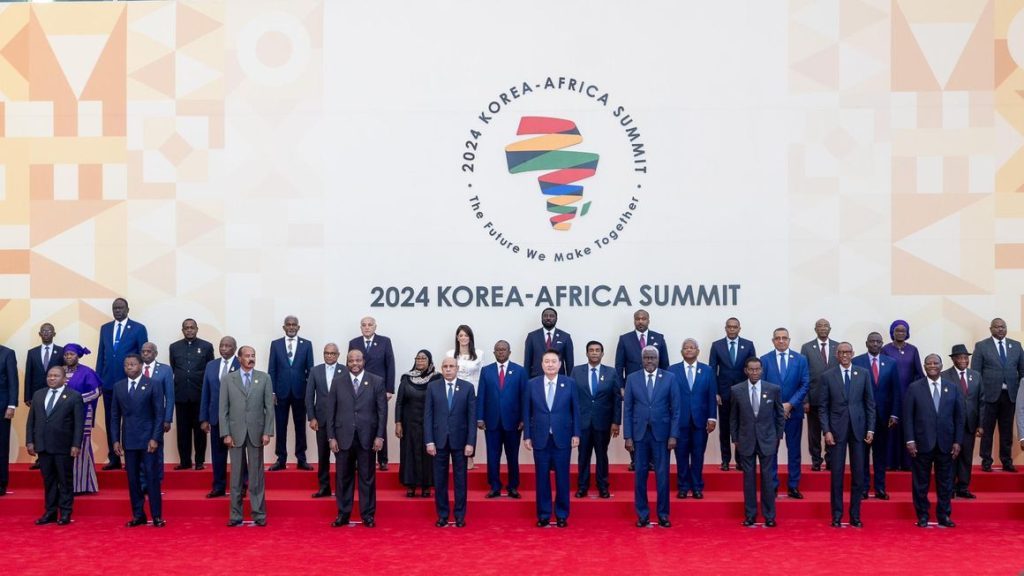South Korea is hoping its first-ever summit with African leaders, set for Tuesday, will help increase its influence in Africa and strengthen economic ties. The meeting, which will take place in Seoul, comes as other countries like China, the US, Russia, and the European Union have already established relationships with the continent.
According to Chung Byung-won, South Korea’s Deputy Minister for Political Affairs, his country is in a good position to work with Africa because both have a shared history of overcoming poverty. He explained that South Korea was able to achieve significant growth with the help of the international community, which is why they believe they can help Africa in a similar way.
Why South Korea is interested in Africa
South Korea is also interested in Africa’s large mineral resources, which are important for its goal of transitioning to greener technology. Mr. Chung mentioned that South Korea wants to deepen its economic cooperation with African countries to support both Africa’s development and South Korea’s own growth.
One example of this is South Korea’s interest in partnering with countries like Zambia, which has valuable minerals like copper that are essential for producing electric vehicles and batteries.
The summit will give African leaders, including the Presidents of Kenya, Tanzania, and Rwanda, the chance to directly promote investment opportunities in their countries. South Korea has also granted official state visits to leaders from countries like Tanzania, Ethiopia, and Sierra Leone, showing their growing interest in Africa.
The meeting is organized around three main goals: improving South Korea’s engagement with developing nations, promoting mutual economic growth, and tackling global issues like climate change and security. South Korea has framed the summit as a chance to reflect on its own history of overcoming poverty and colonialism, while also emphasizing values like democracy and free markets.
During the summit, South Korea will present various development initiatives for Africa, such as offering development aid, training programs, and sharing expertise in areas like education, healthcare, and agriculture. These efforts aim to help African countries reach their development goals and reduce the gap between them and other parts of the world.
South Korea also views Africa as a key partner in securing critical minerals needed for modern industries, like those required for the Fourth Industrial Revolution. In return, Africa can benefit from South Korean investments in areas like infrastructure, natural resources, and technology.
However, some experts, like Professor David Monda from the City University of New York, say the success of this partnership will depend on removing trade barriers and improving transportation links, such as direct flights between South Korea and African capitals.
Although South Korea has made progress, with trade between the two regions increasing significantly over the years, some challenges remain. For instance, South Korea still has strict non-tariff trade barriers, which may need to be adjusted to accommodate African products. There are also calls for African leaders to push for more value-added exports instead of just raw materials.
South Korea has taken steps to improve its relationship with Africa, including becoming an observer state at the African Union and increasing trade and investment. It has also been involved in projects like the $1 billion Lobito Corridor in Angola and programs aimed at boosting rice production in countries like Kenya, Uganda, and Senegal.
South Korea’s trade with Africa grew from $890 million in 1988 to $20.5 billion in 2022, and its investments in Africa have also risen significantly. The country hopes to continue building on this positive trend and strengthen its ties with the continent.




















